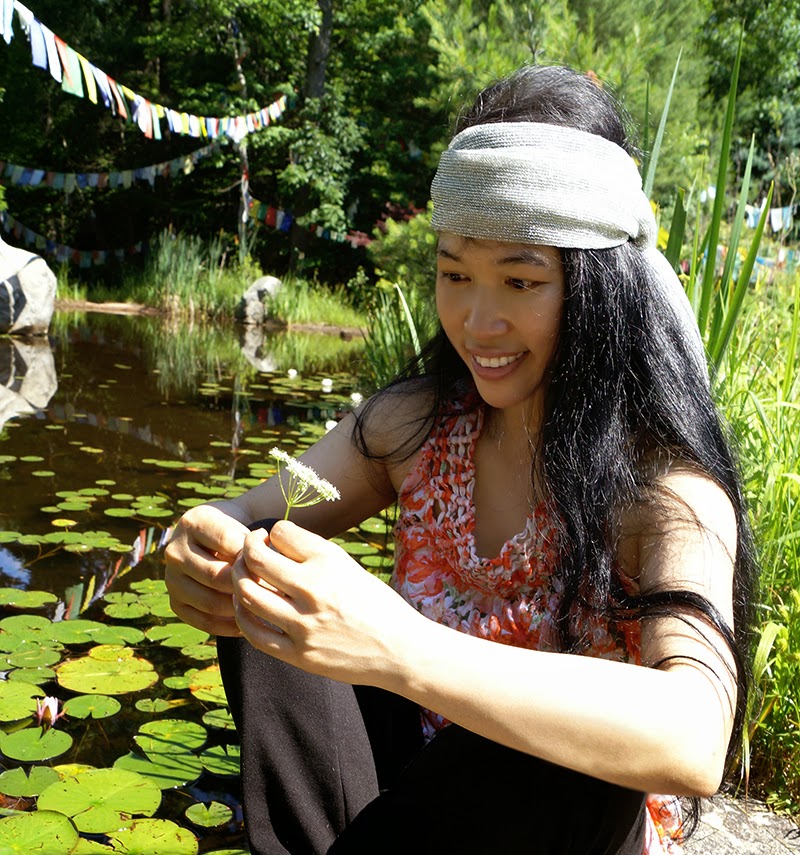
By Ven. Dr. K Sri Dhammananda
The word ‘love’ is used to cover a very wide range of emotions human beings experience. Emphasis on the base animal lust of one sex for another has much debased the concept of a feeling of amity towards another being. According to Buddhism, there are many types of emotions, all of which come under the general term ‘love’ First of all, there is selfish love and there is selfless love. One has selfish love when one is concerned only with the satisfaction to be derived for oneself without any consideration for the partner’s needs or feelings. Jealousy is usually a symptom of selfish love. Selfless love, on the other hand, is felt when one person surrenders his whole being for the good of another _parents feel such love for their children. Usually human beings feel a mixture of both selfless and selfish love in their relationships with each other. For example, while parents make enormous sacrifices for their children, they usually expect something in return.
Another kind of love, but closely related to the above, is brotherly love or the love between friends. In a sense, this kind of love can also be considered selfish because the love is limited to particular people and does not encompass others. In another category we have sexual love, where partners are drawn towards each other through physical attraction. It is the kind that is most exploited by modern entertainment and it can cover anything from uncomplicated teenage infatuations to the most complex of relationships between adults.
On a scale far higher than these, is Universal Love or Metta. This all-embracing love is the great virtue expressed by the Buddha. Lord Buddha, for example, renounce His kingdom, family and pleasures so that He could strive to find a way to release mankind from an existence of suffering. In order to gain His Enlightenment, he had to struggle for many countless lives. A lesser being would have been disheartened, but not the Buddha-elect. It is for this He is called ‘The Compassionate One’. The Buddha’s boundless love extended not only to human beings but all living creatures. It was not emotional or selfish, but a love without frontiers, without discrimination. Unlike the other kinds of love, Universal love can never end in disappointment or frustration because it expects no reward. It creates more happiness and satisfaction. One who cultivates universal love will also cultivate sympathetic joy and equanimity and he will then have attained to the sublime state.
In this book, The Buddha’s Ancient Path Ven. Piyadassi says:
‘Love is an active force. Every act of the loving one is done with the stainless mind to help, to succor, to cheer, to make the paths of others easier, smoother and more adapted to the conquest of sorrow, the winning of the highest bliss.
‘The way to develop love is through thinking out the evils of hate, and the advantages of non-hate; through thinking out according to actuality, according to karma, that really there is none to hate, that hate is a foolish way of feeling which breeds more and more darkness, that obstructs right understanding. Hate restricts; love release. Hatred strangles; love enfranchises. Hatred brings remorse; love brings peace. Hatred agitates; love quietens, stills, calms. Hatred divides; love unites. Hatred hardens; love softens. Hatred hinders; love helps. And thus through a correct study and appreciation of the effects of hatred and the benefits of love, should one develop love.’
In Metta Sutta, the Buddha has expounded the nature of love in Buddhism. ‘Just as a mother would protect her only child even at the risk of her own life, even so, let him cultivate a boundless heart towards all beings. Let his thoughts of boundless love pervade the whole world, above, below and across without any obstruction, without any hatred, without any enmity.’


















